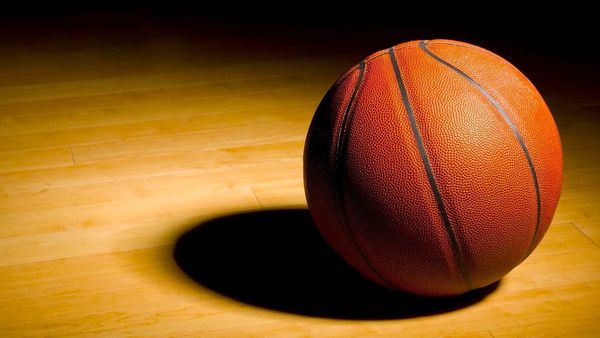While I don't coach baseball anymore, I'm still giving hitting lessons and am around young players quite a bit. Plus, it seems that my identity is, and probably always will be, most closely associated with the game of baseball. I have no problem with that because, as I've said so many times, I feel like I owe the game. I feel like the game saved my life. As Roy Hobbs said in "The Natural": "God, I love baseball."
When I was a young baseball player, I did a lot of things wrong. I didn't always hustle. I showed my temper. I threw my helmet. I cried on the field. I was a baby.
And that was just in the first inning.
I'm kidding. Kinda.
But I really didn't respect the game, my teammates or my coaches like I should have. I was too selfish. Too concerned with my own performance. I was so wrapped up in my own personal statistics.
Man, I'd love to have a do over.
I know that's true of at least one thing with practically everyone. But, we don't generally get do overs, do we?
Well, yes. Sort of. Those of us who have children get to help them do things better than we did...if they'll listen. Those of us who got to coach got to teach things we wish we'd done...or didn't do. As I said, I don't coach a team anymore, but I'm still teaching baseball through hitting lessons.
With that said, I'd like to throw some things out there for the young players who I'll never get to coach or impact in any way. These things are invaluable and will go a long way towards helping you get to your highest level...whatever that may be. We all have a ceiling to which our talent can reach. In my opinion, most fall short of that ceiling because of things like laziness, entitlement, ignorance, stubbornness, parents, and poor coaches. Some guys reach beyond what some felt was their ceiling. For example, Mike Piazza was only drafted as a family favor. But that dude worked his rear end off and eventually made the Hall of Fame. However, very, VERY few have Hall of Fame talent or work ethic. Generally, people stop playing before hitting their talent ceiling though. I've coached a lot of kids who could have played college baseball if they wanted to, but other things in life (some good, some bad) became more important.
Anyway, here are a few things that will only help the young baseball player.
1. Stretching, playing catch and all other pregame activities matter.
I know a Hall of Fame college coach who said this: "Before we make a decision to offer a player, I go and watch him play. I don't really go to see his ability. I already know he can play. We've got coaches whose job it is to find players for us, so by the time the player's name gets to me, we already know he can play. I go to watch him warm up. I go to see him play catch. If he's giving a half-effort then, I don't even stay for the game. I scratch his name off and move on." Wow. That's strong stuff. But, it makes a great point. You never know who is watching and always make sure you're giving your best effort. I sure would hate to know a Hall of Fame coach passed on me because I wasn't taking the pregame catch seriously.
2. Stop being so "result oriented".
When I give lessons, I always ask this one question before I ever watch a kid swing. I ask, "What is your goal when you come up to bat?" Almost every time, the player will respond, "To get a hit." While that's great, that's really a poor goal and here's why: If the player absolutely crushes a ball...I mean, he hits it as hard and as far as he ever has...and a fielder makes a career catch, you know, one of those Willie Mays over the shoulder catches, for the out...that player can't be mad. He did all he could do. He just hit the hardest ball of his life and got out. That's the game. That's how it works. Similarly, if a batter barely hits one off of the end of the bat and it bloops over the first baseman's head, hits the chalk and the batter winds up on second with a double, can he really feel good about his swing? No. I know that dad is happy and it "looks like a line drive in the score book", but it WASN'T a line drive. The batter did something wrong and just got lucky. That, too, is the game. That's how it works. But, in my scenario, the out was much better than the hit. I promise that a college or professional scout would be much more impressed with the out than the hit. Several years ago during a game, I was sitting with the parents of one of my son's teammates and the mom was frustrated because her son, who was pitching, wasn't going to "get the win" on the mound. I asked her why that mattered as long as we won. She said that college coaches looked at that stuff. I disagreed. She argued with me so I just texted a friend of mine who is a professional scout and said, "Do college or pro scouts care what a pitcher's won/loss record is?" His reply came quickly: "No."
3. Be a good teammate.
Be the first guy out of the dugout when your teammate does well. Be the first guy to pick him up when he does poorly. Several years ago I was watching a college game in which the starting pitcher pitched extremely well, got tired, and gave way to a star relief pitcher. That star promptly blew the lead for the team and the pitcher. He had to be taken out of the game and the first guy to meet him was the starting pitcher who had just lost his "win". That's a good teammate. Back in 2014, we were playing a team in our region whose coach was connected with Team Tennessee. Our starting pitcher in game two threw a shutout, got three hits and stole five bases. That was an impressive game, but what was more impressive was what happened after the game. That kid, who was the star of the game, was still working on the mound when the opposing coach finally left the field. He was the only player still there. Before that coach left, he called the head coach of Team Tennessee and said, "If you don't have the kid from McCallie on your team, you're messing up." That kid was added to Team Tennessee and eventually became a starter for them. It's just the way he played...the way he approached the game, before and after...that made him so valuable. As I said earlier, you never know who is watching.
4. Pack your own stuff and carry your own stuff.
This is mostly aimed at the younger player, and parents of the younger player, because I see way too many parents packing and carrying their child's equipment bag. Make him pack and carry his own. Parents, I get that you're afraid that he will leave an expensive item behind, but you can certainly check behind him before you leave the park. I never, not one time, packed or carried my child's bags to or from the field. Did they forget stuff? Yes. Did we drive back to the field and look for it? Yes. But, it's a learning experience. Think about the message you're sending by packing and carrying his bag. It's not a good one.
These are only a few of many suggestions that I gave my players when I was coaching. I continue to give these to the kids that hit with me. I can't guarantee that these things will get you a scholarship or a contract, but I can guarantee that if you do them, certain intangibles that are used to separate kids from each other will be in your favor.





















